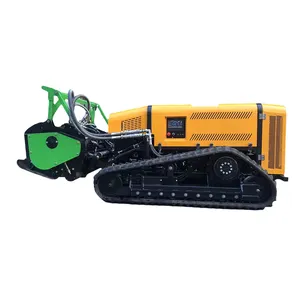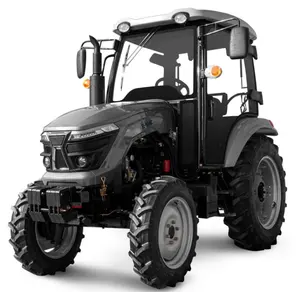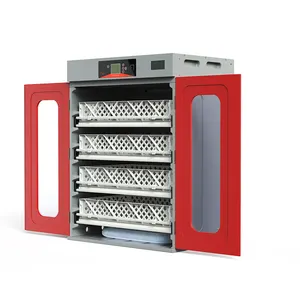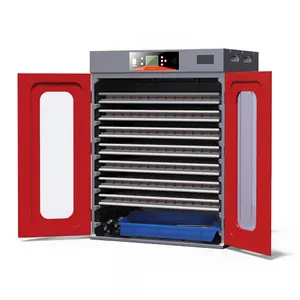Popular in your industry



























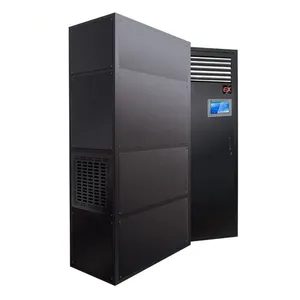













































Related Searches:




























































































































Top categories
About exterior ac unit
Introduction
Choosing the right exterior AC unit for your home can be a daunting task, given the myriad of options available and the technical aspects involved. This comprehensive buyer's guide aims to simplify this process by providing an in-depth understanding of the basics of exterior AC units, exploring the different types available, and discussing key factors to consider when making your choice. From understanding how central air conditioners, heat pumps, and ductless mini-split systems work, to considering size, capacity, energy efficiency, climate, installation, cost, and brand reputation, this guide covers it all. It also offers tips on finding a reliable AC installer to ensure a successful installation.
Understanding the Basics of Exterior AC Units
An exterior AC unit, also known as the outdoor unit, plays a crucial role in cooling your home. It's typically located at the side or rear of your house and is responsible for dispersing the heat absorbed from your home's air. The unit contains key components like the compressor, condenser coil, and a fan. The heat absorbed from your home's air is transferred to the refrigerant and then pumped to the outdoor unit. As the refrigerant passes through the condenser, a fan delivers ambient air across the condenser coil causing it to cool. This process helps in maintaining a comfortable temperature inside your home.
Types of Exterior AC Units
Exterior AC units come in various types, each designed to suit different needs. Central Air Conditioners are ideal for large homes, using a split system to regulate air through ducts. Heat Pumps, another type, work by transferring heat from one place to another, making them efficient for both heating and cooling. Ductless Mini-Split Systems are perfect for homes without ductwork, providing individual room control for better efficiency. Each type has its own advantages and considerations, making it crucial to understand your specific needs before making a choice.
Central Air Conditioners
Central air conditioners work on a principle of refrigeration and cooling, consisting of an indoor unit with components like the evaporator and air distribution fans, and an outdoor unit holding a compressor and condenser. The two units are connected by power cables and tubes containing a refrigerant, which enables heat removal and cooling generation. The cooling process begins with the liquid refrigerant in the indoor unit evaporating into a gas, absorbing heat, and cooling the evaporator coil. The air handling equipment blows air over this cooled coil, producing conditioned air that lowers the temperature inside your home.
Heat Pumps
Heat pumps are an efficient and eco-friendly HVAC system that can both heat and cool your home. They work by using refrigerant to move heat from one location to another. In the summer, they extract heat from inside your home and exhaust it outside. In the winter, they can operate in reverse, absorbing thermal energy from outdoor air and depositing it inside. However, it's important to note that their efficiency can decrease if it's too cold outside.
Ductless Mini-Split Systems
Ductless mini-split systems are highly flexible, cost-effective, and easy to install. They deliver air directly into different zones, offering homeowners a way to replace inefficient window air conditioning units. These systems operate on less power, allowing for cost savings and improved energy efficiency. They also offer multi-stage filtration, reducing dust, bacteria, pollen, allergens, and other particulates in the air. Moreover, they follow energy efficiency guidelines, reducing your carbon footprint.
Key Factors to Consider When Choosing an Exterior AC Unit
Choosing the right exterior AC unit involves several key factors. The size and capacity of the unit should match the square footage of your home for optimal cooling. Energy efficiency, indicated by SEER ratings, is crucial for cost-effective operation. Climate and weather conditions in your area can affect the unit's performance. Installation and maintenance requirements, cost and budget considerations, and the reputation and warranty of the brand are also important aspects to consider. An improperly sized unit can lead to inadequate cooling, excessive energy consumption, and increased wear and tear.
Size and Capacity
Choosing the right size and capacity for your exterior AC unit is crucial for optimal performance and energy efficiency. The size of the AC unit should match the square footage of your home. An improperly sized unit can lead to inadequate cooling, excessive energy consumption, and increased wear and tear. When calculating the size of the AC unit you need, consider the square footage of your home, the climate, the home's exterior, sun exposure, insulation, windows, ceiling height, and heat-generating appliances. A well-sized unit will run efficiently all year round, providing comfort and saving on energy costs.
Energy Efficiency
Energy efficiency is a crucial factor to consider when choosing an exterior AC unit. Every air conditioner or heat pump has a SEER (Seasonal Energy Efficiency Ratio) rating. The higher the SEER rating, the less electricity the unit uses. As of 2023, SEER2 has replaced SEER as the rating system for AC efficiency. The SEER Savings calculator can help you compare the cooling costs of two air conditioners or heat pumps by using their SEER/SEER2 ratings, and estimate your annual savings. Remember, the potential savings with a higher SEER2 rating can be significant.
Climate and Weather Conditions
Climate and weather conditions significantly impact the performance of your exterior AC unit. In extreme summer temperatures, your AC system might begin to experience problems. Most systems are designed to function with outside temperatures of 100 degrees or less. When temperatures rise above this, the AC system can consume more energy and may malfunction. Similarly, when outside temperatures reach 95 degrees or higher, your AC system will run at its maximum capacity, which can lead to increased energy usage and higher utility bills. Therefore, considering the climate and weather conditions of your area is crucial when choosing an exterior AC unit.
Installation and Maintenance
Maintaining your exterior AC unit is crucial for its longevity and efficiency. Regular cleaning, such as removing debris and cleaning the fins, is essential. The unit should be level, and the evaporator coil and drain need regular cleaning. The blower filter should be changed at least twice a year. While some maintenance can be done by homeowners, certain tasks require a trained HVAC technician. Regular professional check-ups, especially before the cooling season, are recommended.
Cost and Budget
The cost of an exterior AC unit varies greatly depending on the type and size. Central air conditioners typically cost between a certain range, while heat pumps have a different price range. Ductless mini-split systems can cost anywhere within a specific range. These costs exclude installation, which can range depending on the contractor's experience and the complexity of the job. The brand of the unit can also impact the price, with various brands offering more affordable options compared to others.
Brand Reputation and Warranty
Choosing a brand with higher predicted reliability and better owner satisfaction will boost your chances of getting an air-conditioning system that you can depend on. Historically, users have expected their central air systems to last a median of 15 years. It's crucial to consider the brand's reputation and the warranty offered when choosing an exterior AC unit. Brands with a track record of reliability and high owner satisfaction are likely to provide a more dependable system.
How to Find a Reliable AC Installer
Finding a reliable AC installer can be daunting. Start by identifying local HVAC companies and narrowing down your list to the top three contenders. Arrange for an on-site estimate visit with each, ensuring to ask safety and service-related questions. During the visit, pay attention to their professionalism and ask about company guarantees on labor and equipment. Before finalizing, understand the basics of your HVAC system and check a few miscellaneous but important considerations. This thorough process will help you avoid a bad HVAC contractor and ensure a successful installation.
Conclusion
Choosing the right exterior AC unit is a significant decision that impacts your home's comfort and energy efficiency. Understanding the basics of these units, the different types available, and their respective advantages can help you make an informed choice. Key factors such as size, capacity, energy efficiency, climate, installation, cost, and brand reputation should guide your decision. Remember, a well-chosen unit will not only provide optimal cooling but also result in significant energy savings. Lastly, finding a reliable installer is crucial to ensure your unit is installed correctly and functions at its best. With this comprehensive guide, you are now equipped to make a well-informed decision that suits your specific needs.


